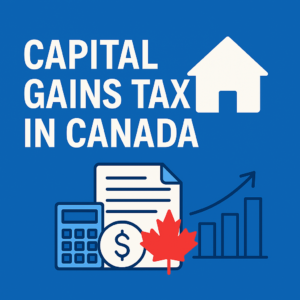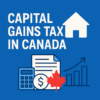The Canadian housing market is forecast to regain stability in 2025, with lower interest rates and updated lending regulations expected to draw more buyers, as outlined in Royal LePage’s Market Survey Forecast. The company predicts that the average price of a home will rise by 6% by the fourth quarter of 2025, reaching an estimated $856,692, reflecting a return to historical trends.
Detached single-family homes are projected to see a 7% price increase, reaching a median value of $900,833, while condominium prices are expected to rise by 3.5%, reaching $605,993. According to Phil Soper, president and CEO of Royal LePage, the demand from motivated buyers is increasing, and adjustments to mortgage lending rules will further empower Canadians to borrow more.
“The Bank of Canada’s recent policy shift from tackling inflation to stimulating the economy has significantly boosted market optimism,” says Soper. “We observed a noticeable rise in market activity following the Bank’s rate cut in early Q4, with many buyers now believing home prices have reached their lowest point.”
Regional Price Trends Point to Strong Demand
Price growth is expected across all major Canadian markets. Quebec City is predicted to lead the charge with an 11% increase, while Edmonton and Regina are expected to see 9% gains. Greater Montreal will likely experience a 6% price hike, outperforming the Greater Toronto Area (GTA), which is projected to see a moderate 5% increase, and Metro Vancouver, which will have a 4% rise.
Soper points out that over the last few months, supply has been gradually increasing in Toronto and Vancouver, as sellers responded to early rate cuts by listing their homes. However, high home prices in these cities have led many potential buyers to delay their purchases in anticipation of more favorable borrowing conditions. This delay, combined with stable property prices, reduced the usual urgency to buy, creating a brief standstill in the market. By mid-fall, this situation began to shift as buyers became more engaged with the market once again.
New Mortgage Rules to Support First-Time Buyers
Starting December 15, 2024, new mortgage rules will aim to make housing more accessible for first-time buyers and those purchasing new homes. These changes will include allowing 30-year amortizations on insured mortgages and increasing the mortgage insurance cap from $1 million to $1.5 million.
“First-time buyers will benefit the most from these changes,” says Soper. “With more borrowing power and a lower down payment, many will be able to get closer to their first home purchase. As buyers return to the market, we expect builders to respond with more new housing supply, which is much needed.”
Potential Risks and Political Influence
Despite the optimistic outlook, potential disruptions remain. Changes in Canadian housing policies following the next federal election, along with the evolving trade policies of the incoming U.S. administration, could influence Canada’s housing market, according to Soper.
2025 Market Outlook
The first quarter of 2025 is expected to see the largest price increases, driven by an early spring market. National home prices are anticipated to rise by 2% from Q4 2024 to Q1 2025, followed by slower increases of 1.5% in the second and third quarters, and 1% in the final quarter of the year.
Soper believes 2025 will bring a sense of normalcy to the housing market, stating, “After years of volatility, key indicators suggest the market will stabilize next year, creating a more predictable environment.”
FAQs
-
What will happen to Canadian home prices in 2025?
Home prices in Canada are expected to rise by 6% in 2025, with single-family detached homes experiencing a 7% increase. -
Which regions in Canada will see the highest home price increases in 2025?
Quebec City is projected to see an 11% increase in home prices, followed by Edmonton and Regina with 9% gains. -
How will new mortgage rules affect first-time homebuyers?
The new rules, effective December 15, 2024, will allow 30-year amortizations and increase the mortgage insurance cap to $1.5 million, making it easier for first-time buyers to afford a home. -
What impact did the Bank of Canada’s rate cut have on the housing market?
Following the Bank of Canada’s rate cut, market activity increased, with many buyers believing home prices had hit their lowest point, encouraging more purchases. -
How will political changes affect the Canadian housing market?
Political shifts, such as new housing policies after Canada’s federal election and the U.S. trade agenda, could disrupt the housing market in Canada, influencing prices and demand.

















